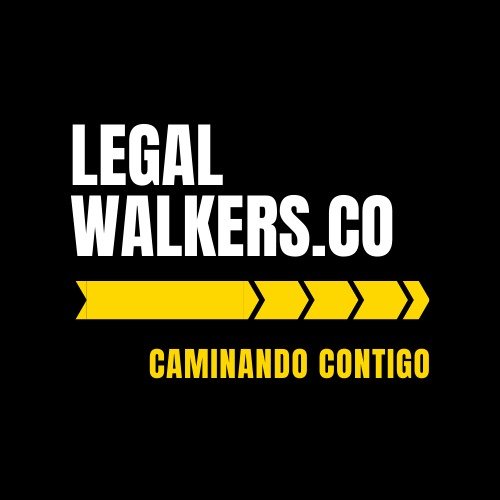Best Public-Private Partnerships (PPP) Lawyers in Bogotá
Share your needs with us, get contacted by law firms.
Free. Takes 2 min.
List of the best lawyers in Bogotá, Colombia
About Public-Private Partnerships (PPP) Law in Bogotá, Colombia
Public-Private Partnerships (PPPs) are legal structures in which the public sector partners with private companies to finance, construct, and operate projects that serve the public interest. In Bogotá, PPPs are commonly used to deliver infrastructure projects such as roads, hospitals, schools, and transportation systems. By leveraging private investment and expertise, PPPs can help accelerate development, improve public service delivery, and introduce innovation. The legal environment for PPPs in Colombia is defined by both national and local regulations, with oversight and policy provided by sector-specific agencies and municipal entities within Bogotá.
Why You May Need a Lawyer
Navigating PPPs can be complex due to the intricate blend of public and private interests and compliance with rigorous legal frameworks. Here are some common scenarios where legal assistance is crucial:
- Understanding eligibility and procedures for bidding on PPP projects in Bogotá - Drafting and negotiating PPP contracts - Advising on risk allocation and compliance with Colombian regulatory requirements - Assisting with dispute resolution between government entities and private-sector partners - Ensuring conformity with environmental, social, and financial obligations - Handling contractual amendments and renegotiations - Managing project closures, handbacks, or termination - Advising on tax implications and structuring investments - Preparing due diligence for local and foreign investors A lawyer with expertise in Colombian PPP law can guide parties through every stage of the process, reduce risks, and secure successful and lawful project outcomes.
Local Laws Overview
Key laws and regulations govern PPP projects in Bogotá. Colombia’s primary PPP framework is set by Law 1508 of 2012, which establishes guidelines for structuring and executing PPP projects throughout the country. Complementary regulations, local Bogotá municipal decrees, and sector-specific rules shape how PPPs operate in the city.
Notable legal aspects include:
- Requirement for transparent, competitive bidding to select private partners - Mandatory risk analysis and allocation to define public and private obligations - Financial structuring, including potential guarantees and government contributions - Environmental and social impact assessments as part of project approvals - Enforcement of compliance, monitoring, and reporting requirements - Specific PPP procedures for unsolicited and solicited proposals in Bogotá - Local procurement rules and harmonization with national PPP systems - Anti-corruption, anti-bribery, and conflict-of-interest regulations A qualified lawyer can help ensure all procedures are followed correctly and minimize the risk of legal complications throughout the project lifecycle.
Frequently Asked Questions
What is a Public-Private Partnership (PPP) in Bogotá?
A PPP is a contractual relationship between a public authority and a private entity to finance, construct, operate, or maintain public infrastructure or services, sharing risks and rewards according to Colombian law.
Who can participate in PPPs in Bogotá?
Both Colombian and international companies, as long as they meet eligibility and qualification requirements defined by local and national regulations.
What types of projects are commonly developed as PPPs in Bogotá?
Common PPP projects in Bogotá include highways, public transportation systems, schools, hospitals, water and sanitation infrastructure, and public buildings.
How are PPP contracts awarded in Bogotá?
Most PPP contracts are awarded through public tender processes, though unsolicited proposals can be submitted if they meet strict regulatory criteria.
What law governs PPPs in Bogotá?
The primary legal framework is Law 1508 of 2012, along with municipal decrees, specific sector regulations, and general Colombian procurement law.
What are the main risks in PPP projects?
Risks include construction delays or cost overruns, demand or revenue shortfalls, regulatory changes, environmental impact issues, and disputes between parties.
What is the duration of a typical PPP contract?
PPP contracts usually last between 5 and 30 years, depending on the project’s scale and complexity, with options for extensions or early termination under certain circumstances.
Are there mechanisms to resolve disputes in PPP contracts?
Yes. PPP contracts usually include specific dispute resolution mechanisms such as negotiation, mediation, or, if necessary, arbitration in accordance with Colombian law.
What are the main benefits of PPPs for Bogotá?
PPPs can deliver public infrastructure faster, introduce efficiency and innovation, mobilize private capital, and reduce fiscal pressure on local budgets.
Can PPP projects access public funding or guarantees?
Certain PPP projects may benefit from government contributions, guarantees, or subsidies, provided they comply with legal requirements and demonstrate value for money and public benefit.
Additional Resources
The following organizations and resources offer further information or assistance related to PPPs in Bogotá:
- National Infrastructure Agency (Agencia Nacional de Infraestructura, ANI) - Oversees major PPP infrastructure projects in Colombia - Vice-Ministry of Infrastructure (Viceministerio de Infraestructura) - Provides policy guidance and support - Secretariat of Mobility of Bogotá - Regulates and supervises urban transportation PPPs - Chamber of Infrastructure (Cámara Colombiana de la Infraestructura) - Industry body promoting best practices - National System of Public Procurement (Colombia Compra Eficiente) - Information on government procurement processes - Legal and consulting firms with PPP expertise - Many national and international law firms offer PPP-specific legal services in Bogotá These resources can help you understand requirements and identify contacts for legal and regulatory guidance.
Next Steps
If you need legal assistance with a PPP project in Bogotá, consider these steps:
1. Clarify your objectives: Define your project’s scope, financial expectations, and timeline. 2. Gather documentation: Collect relevant documents such as business licenses, company information, and proposed project ideas. 3. Conduct initial research: Review general PPP requirements and assess your eligibility. 4. Seek legal advice: Consult with a lawyer or legal firm experienced in PPPs in Colombia to obtain specific, up-to-date advice. 5. Engage stakeholders: Discuss your plans with potential partners, government authorities, and financiers. 6. Follow official procedures: Ensure all application, bidding, and negotiation processes comply with applicable laws. By working with experienced legal professionals and leveraging official resources, you can increase your chances of successful participation in a PPP in Bogotá.
Lawzana helps you find the best lawyers and law firms in Bogotá through a curated and pre-screened list of qualified legal professionals. Our platform offers rankings and detailed profiles of attorneys and law firms, allowing you to compare based on practice areas, including Public-Private Partnerships (PPP), experience, and client feedback.
Each profile includes a description of the firm's areas of practice, client reviews, team members and partners, year of establishment, spoken languages, office locations, contact information, social media presence, and any published articles or resources. Most firms on our platform speak English and are experienced in both local and international legal matters.
Get a quote from top-rated law firms in Bogotá, Colombia — quickly, securely, and without unnecessary hassle.
Disclaimer:
The information provided on this page is for general informational purposes only and does not constitute legal advice. While we strive to ensure the accuracy and relevance of the content, legal information may change over time, and interpretations of the law can vary. You should always consult with a qualified legal professional for advice specific to your situation.
We disclaim all liability for actions taken or not taken based on the content of this page. If you believe any information is incorrect or outdated, please contact us, and we will review and update it where appropriate.










